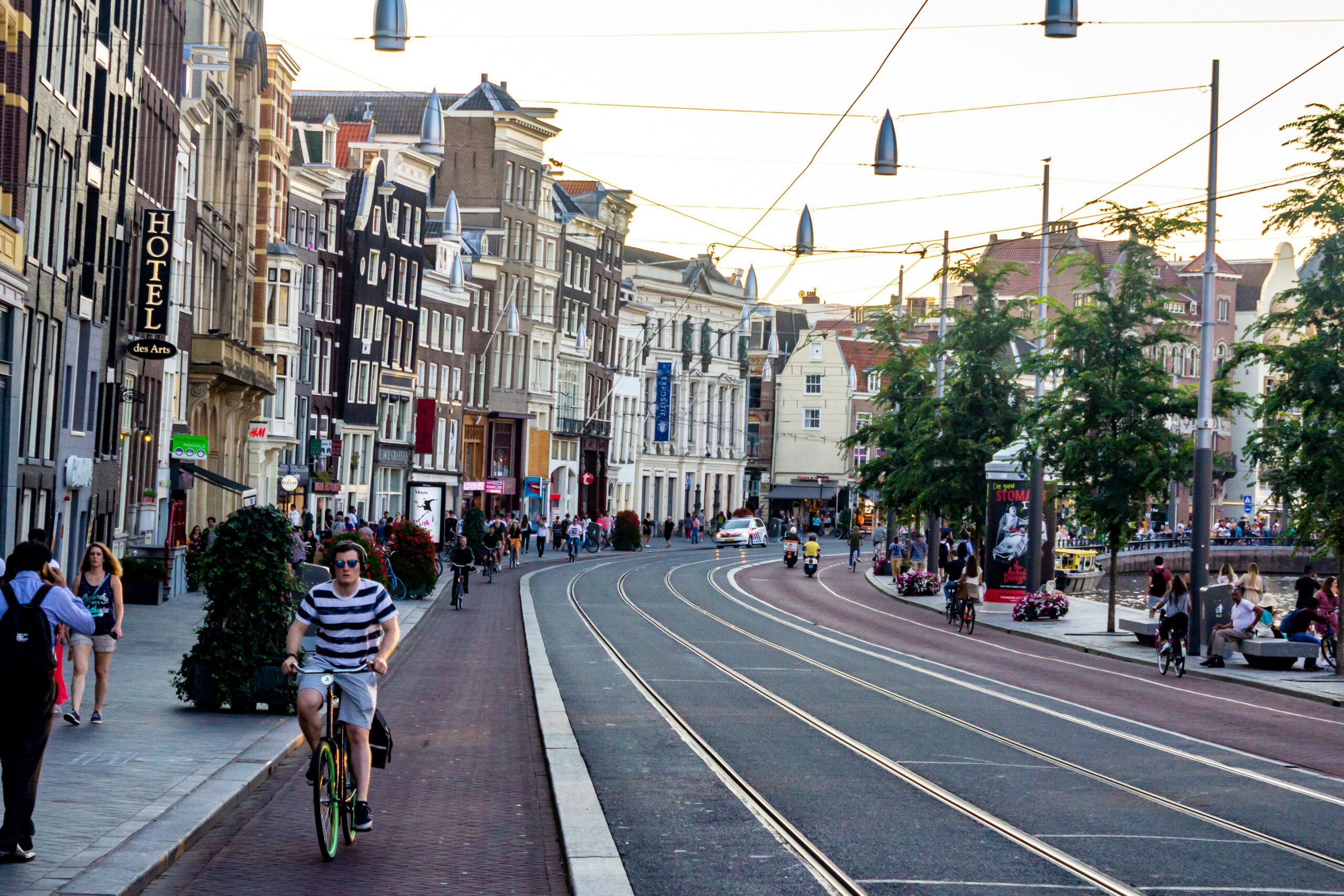Introduction to environmental awareness and conservation while traveling
Traveling opens up a world of adventure, culture, and breathtaking landscapes. Yet, as we roam from one destination to another, it’s crucial to pause and reflect on our impact on the environment. Each journey has the potential to leave a mark—both positive and negative. By practicing environmental awareness and conservation while traveling, we can explore new places without compromising their beauty for future generations.
Imagine hiking through lush forests or strolling along pristine beaches while knowing you’re contributing to the preservation of these natural wonders. Embracing sustainable travel practices allows us not only to enjoy these experiences but also to protect them. So let’s embark on this journey together! We’ll explore how simple changes in our travel habits can create lasting benefits for both local communities and the planet itself. Ready? Let’s dive into a more responsible way of exploring the world around us!
The impact of travel on the environment
Traveling can be an exhilarating experience, but it comes with significant environmental costs. From carbon emissions produced by flights to the pollution generated by cruise ships, our wanderlust often leaves a heavy footprint.
Natural habitats are disrupted when tourists flock to popular destinations. This can lead to loss of biodiversity and strain on local ecosystems. Additionally, excessive waste from tourism activities contributes to landfill overflow and ocean pollution.
Water resources also face pressure in tourist hotspots. Increased demand for water can deplete local supplies, affecting both residents and wildlife alike.
While travel enriches our lives, it’s essential to recognize its impact on the environment. Awareness is the first step toward making more sustainable choices as we explore new places around the globe.
Tips for reducing your carbon footprint while traveling
Choose direct flights whenever possible. They reduce the amount of fuel burned during travel.
Consider using public transportation at your destination. Buses and trains are often more eco-friendly than rental cars or taxis.
Pack light to minimize weight. Lighter luggage means less fuel consumption, whether you’re flying or driving.
Bring a reusable water bottle and coffee cup. This cuts down on single-use plastics that contribute to waste.
Opt for local foods over imported ones. Eating locally not only supports farmers but also reduces carbon emissions from transporting goods long distances.
Stay longer in fewer places rather than hopping around frequently. Slower travel allows you to immerse yourself while reducing your overall travel footprint.
Offset your carbon emissions by supporting renewable energy projects or tree-planting initiatives. Every little bit helps when it comes to protecting our environment while exploring the world.
Supporting local communities and economies through sustainable tourism practices
Traveling offers a unique chance to support local communities. When you choose sustainable tourism practices, your impact resonates beyond just the destination.
Opt for locally-owned accommodations and eateries. This approach ensures that your money stays within the community, helping families thrive and preserving local culture.
Engaging with artisans and markets not only provides you with authentic souvenirs but also empowers local craftspeople. They can share their stories, creating a richer experience for everyone involved.
Participating in community-led tours fosters genuine connections between travelers and residents. These experiences often highlight cultural traditions while promoting environmental conservation efforts.
Consider volunteering during your travels. Whether it’s beach clean-ups or wildlife protection initiatives, giving back helps strengthen communal ties and promotes sustainability in these cherished places.
Responsible wildlife tourism: dos and don’ts
When it comes to wildlife tourism, it’s essential to tread carefully. Observing animals in their natural habitats can be a rewarding experience, but respecting their space is crucial.
Do prioritize guided tours led by knowledgeable locals. They understand animal behaviors and ensure you observe without disturbing them.
Don’t feed wild animals or attempt to touch them. Human interaction can disrupt their natural instincts and routines, leading to harmful consequences.
Do choose eco-friendly tours that prioritize conservation efforts. These operators often contribute part of their profits toward local wildlife protection initiatives.
Avoid destinations that exploit animals for entertainment purposes. Activities like elephant rides or photos with captive exotic pets may seem appealing but often involve unethical practices behind the scenes.
Educate yourself on the species you’re observing. Understanding their role in the ecosystem enhances your appreciation and encourages responsible behavior during your travels.
Eco-friendly accommodations and transportation options
When it comes to eco-friendly accommodations, options abound. Look for hotels and lodges that prioritize sustainability through energy-efficient practices. Many establishments use solar power, conserve water, and minimize waste. Researching green certifications can guide you towards responsible choices.
Consider booking a stay in an eco-lodge or bed-and-breakfast that sources local materials and supports traditional craftspeople. These unique stays often provide authentic experiences while benefiting the community directly.
Transportation plays a huge role in your travel footprint as well. Opt for trains or buses instead of flying when possible; they usually emit far less carbon per passenger.
If you’re renting a car, choose hybrid or electric vehicles to further lower emissions during your travels. Biking is another fantastic way to explore – it’s not only environmentally friendly but allows you to connect with your surroundings up close.
Every little decision counts toward creating sustainable journeys filled with purpose and respect for our planet’s beauty.
How to be a conscious consumer while traveling
Being a conscious consumer while traveling starts with understanding the impact of your choices. Opt for locally produced goods, which not only supports artisans but also minimizes transport-related emissions.
When dining out, choose restaurants that source ingredients from local farms. This practice strengthens community ties and promotes sustainable agriculture.
In shopping districts, seek out businesses committed to ethical practices. Look for certifications like Fair Trade or organic labels to ensure your purchases benefit both people and the planet.
Avoid single-use plastics whenever possible by carrying reusable bags or containers. Small changes can lead to significant reductions in waste during your travels.
Additionally, consider experiences over souvenirs. Engage with local cultures through classes or workshops instead of buying mass-produced items that may not have genuine significance. Each mindful choice contributes to conservation efforts and enriches your travel experience.
The importance of responsible waste management
Responsible waste management is crucial for preserving the environment during your travels. Every destination has its unique ecosystems, and improper disposal of waste can lead to pollution that harms wildlife and natural beauty.
When exploring new places, be mindful of how you dispose of trash. Carry reusable bags for shopping and snacks. This simple step reduces plastic consumption significantly.
In tourist hotspots, it’s common to see overflowing bins or littered landscapes. Always aim to leave no trace behind. If you come across garbage in nature, consider picking it up—your small effort can make a big difference.
Many communities are embracing zero-waste principles. Support local initiatives by participating in clean-up events or choosing businesses committed to sustainable practices.
Educating yourself about waste management systems at your travel destination can enhance your experience while also showing respect for the land and its people.
Educating yourself and others about sustainable travel practices
Travel is an opportunity to learn, not just about new places but also about sustainable practices. Start by researching eco-friendly options before you leave home. Understand the environmental impact of your choices.
Share this knowledge with friends and family. Discuss how small changes can lead to significant improvements in conservation efforts while traveling. Encourage others to choose local guides who prioritize sustainability.
Social media can amplify your message. Post tips on reducing carbon footprints or highlight destinations that practice responsible tourism. Engaging visuals can inspire action.
Participate in workshops or webinars focused on sustainable travel strategies. Learning from experts broadens your perspective and equips you with valuable insights.
By educating yourself and those around you, you’re creating a ripple effect that fosters awareness and responsibility within the travel community.
Conclusion: The importance of protecting the places we love
Traveling opens up a world of experiences and adventures. However, it also comes with a responsibility to protect the environment we cherish. The places we visit are often fragile ecosystems that require our care and attention.
By practicing environmental awareness and conservation while traveling, every journey can contribute positively to the planet. Simple actions like reducing waste, opting for eco-friendly accommodations, or supporting local economies can make a significant impact.
As travelers, we have the power to influence change through our choices. By prioritizing sustainable practices and educating ourselves about responsible tourism, we ensure that future generations can enjoy these beautiful destinations as well.
Let’s actively participate in preserving our natural wonders and cultural heritage during each trip. Every small effort counts towards protecting the places we love for years to come.














